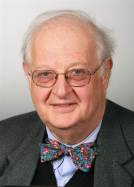Angus Deaton and Modern Economics
12 October 2015 at 11:10 am Peter G. Klein 6 comments
| Peter Klein |
 Angus Deaton has won the 2015 Nobel Prize for his work on measuring consumption and inequality. You can find lots of discussion in the usual places; Lynne has a nice summary here. I don’t know Deaton’s work well but he has been on the unofficial short list for the last several years and his work is important and influential for economic growth and development, poverty and health, and related areas.
Angus Deaton has won the 2015 Nobel Prize for his work on measuring consumption and inequality. You can find lots of discussion in the usual places; Lynne has a nice summary here. I don’t know Deaton’s work well but he has been on the unofficial short list for the last several years and his work is important and influential for economic growth and development, poverty and health, and related areas.
I can’t help poking a little fun at the economics profession, however. You may have heard the joke that economists used to win the Nobel prize for explaining to the general public something that previously only economists understood, but now they win it for explaining to their fellow economists something that the general public has always known, e.g.:
- Politicians care about themselves (Buchanan).
- Don’t put all your eggs in one basket (Markowitz, Miller,and Sharpe).
- You can’t fool all of the people all of the time (Lucas).
- Some people know more than others (Akerlof, Spence, Stiglitz).
Deaton’s major insight: aggregate measures of consumption and inequality conceal important differences among individuals.
Entry filed under: - Klein -, Business/Economic History, People.
6 Comments Add your own
Leave a comment
Trackback this post | Subscribe to the comments via RSS Feed










1. Levi Russell | 12 October 2015 at 11:14 am
Levi Russell | 12 October 2015 at 11:14 am
My first reaction when I heard he won was to recall my demand theory course in grad school. I’m not sure, but it seems that only ag/applied econ programs use Deaton and Muellbauer, 1980.
2. Peter Klein | 12 October 2015 at 11:37 am
Peter Klein | 12 October 2015 at 11:37 am
We didn’t use it in my program.
3. Randy | 12 October 2015 at 8:14 pm
Randy | 12 October 2015 at 8:14 pm
@Levi, my experience is the same as yours. Moreover in my applied econ program (and especially in an applied consumption analysis course), Deaton’s mid-1970s papers on additive preferences and the monumental analysis of UK demand were important.
4. Curt Doolitlte | 13 October 2015 at 5:25 am
Curt Doolitlte | 13 October 2015 at 5:25 am
PETER PROVIDES THE CONTEXT
-Politicians care about themselves (Buchanan).
-Don’t put all your eggs in one basket (Markowitz, Miller,and Sharpe).
-You can’t fool all of the people all of the time (Lucas).
-Some people know more than others (Akerlof, Spence, Stiglitz).
Its easy to underestimate any one of these insights, but as a whole, it’s profound:
Every field is attempting to quash the pseudoscience of the 19th and 20th centuries that Hayek referred to as “mysticism” and others referred to as “philosophy not science” and yet others referred to as “innumeracy”.
Had Mises understood his own insights he and Hayek might have saved us from the catastrophe of the 20th century’s pseudoscience in the social sciences.
5. Årets nobelpristagare | 14 October 2015 at 4:10 pm
[…] finns inga entiteter på makronivå som lever sitt eget liv och kan trotsa de ekonomiska lagarna. Peter Klein raljerar lite på sin blogg över att det mest tycks vara självklara insikter som belönas med […]
6. Roundup 16 October | Catallaxy Files | 16 October 2015 at 7:51 am
[…] For nerds. Favourable comments on Angus Deaton. More commentary on Deaton at Organizations and Markets. With a joke about economists. […]